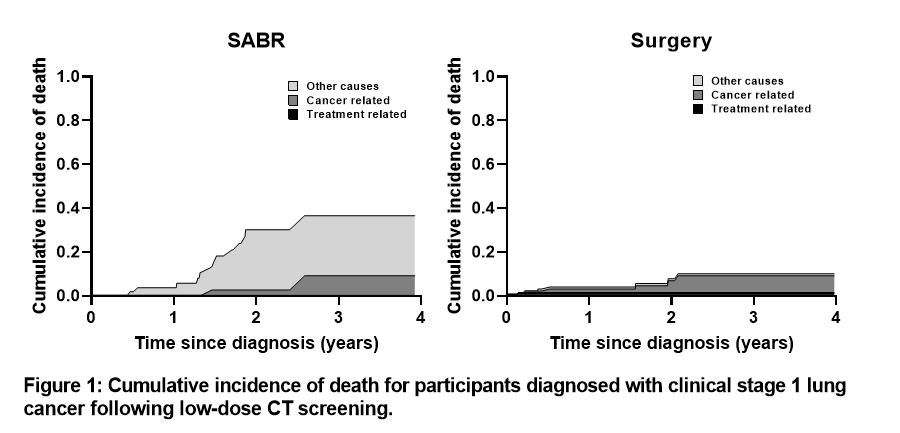Abstract
Introduction
Many nations are implementing low-dose CT screening for lung cancer but treatment decisions and outcomes for screen-detected cases are not well described.
Methods
Clinical data for patients diagnosed with clinical stage I lung cancer in the Yorkshire Lung Screening Trial were reviewed.
Results
Of 197 patients diagnosed with clinical stage I lung cancer from 2019 to 2022, 59 were treated with Stereotactic Ablative Radiotherapy (SABR) and 132 with lung resection (55 lobectomy, 62 segmentectomy, 15 wedge resection). FEV1, DLco, and ISWT were lower for SABR compared to surgery cases (p<0.0001), but there was no differences in these parameters comparing lobectomy and sub-lobar resection (segment/wedge). Of 116 surgical patients with adequate nodal staging, 13 (11.2%) were upstaged (9 following lobectomy, 4 following sub-lobar resection, p=0.07). There were 5 benign resections (3.8%). With follow-up from diagnosis to 01/01/2023 and a median time at risk of 18.9 months, 13 SABR and 8 resection patients died (p=0.005). Most deaths in the SABR group were from non-cancer causes (85%).
Conclusions
Patients treated with SABR were less fit than those having surgery and had worse overall survival due to non-cancer causes of death. In the US, lung cancer screening is only offered to people able to have curative surgery whereas UK practice does not assess surgical fitness prior to screening.
